We love the Valley of Flowers Trek and there’s a reason why it’s our most favorite treks in Uttarakhand. This trek also happens to be one of those treks where a lot of trekkers begin their journey of exploring the Himalayas. There’s definitely more to this trek than meets the eye. This detailed Valley of Flowers trek Guide will give all the details you would need to know about the Valley of Flowers Trek.
- About the trek
- Highlights of the trek
- Valley of Flowers Itinerary
- Altitude covered during the trek
- Treknical details of the trek
- Best time to trek to Valley of Flowers
- How to get fit for the Valley of Flowers trek
- Things to carry on the trek
- How does the trail look in the Monsoons
- Valley of Flowers FAQs
- Insurance for the Valley of Flowers Trek
- Infographic on the Valley of Flowers guide
- Valley of Flowers Important Links
Valley of Flowers Trek Guide – All you need to know!
About the Valley of Flowers Trek:
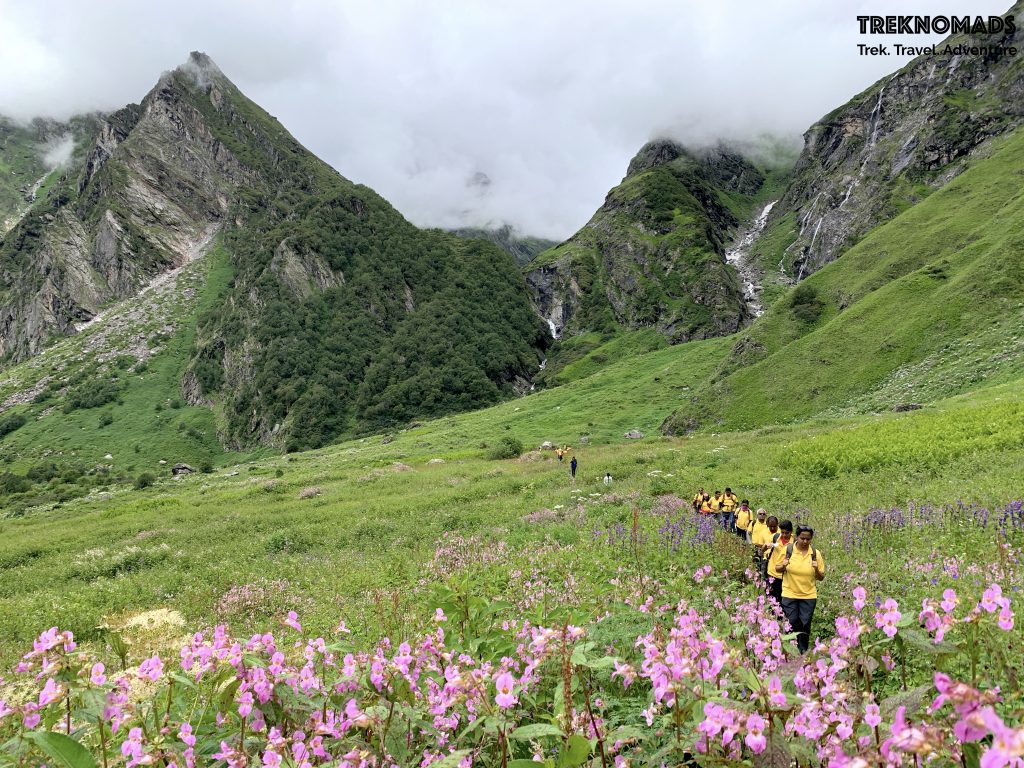
Located in the Nanda Devi Biosphere, Valley of Flowers is a UNESCO World Heritage site and also India’s largest natural botanical garden. One of Uttarakhand’s most scenic destinations are the two adjoining treks, Valley of Flowers and Hemkund Sahib conveniently positioned between Joshimath and Badrinath.
Visit the abode of Flowers!
The valley opens up in a floral splendor from June up until September every year. A good 500 different species bloom and carpet the valley during this time.
Acclimatize in Auli
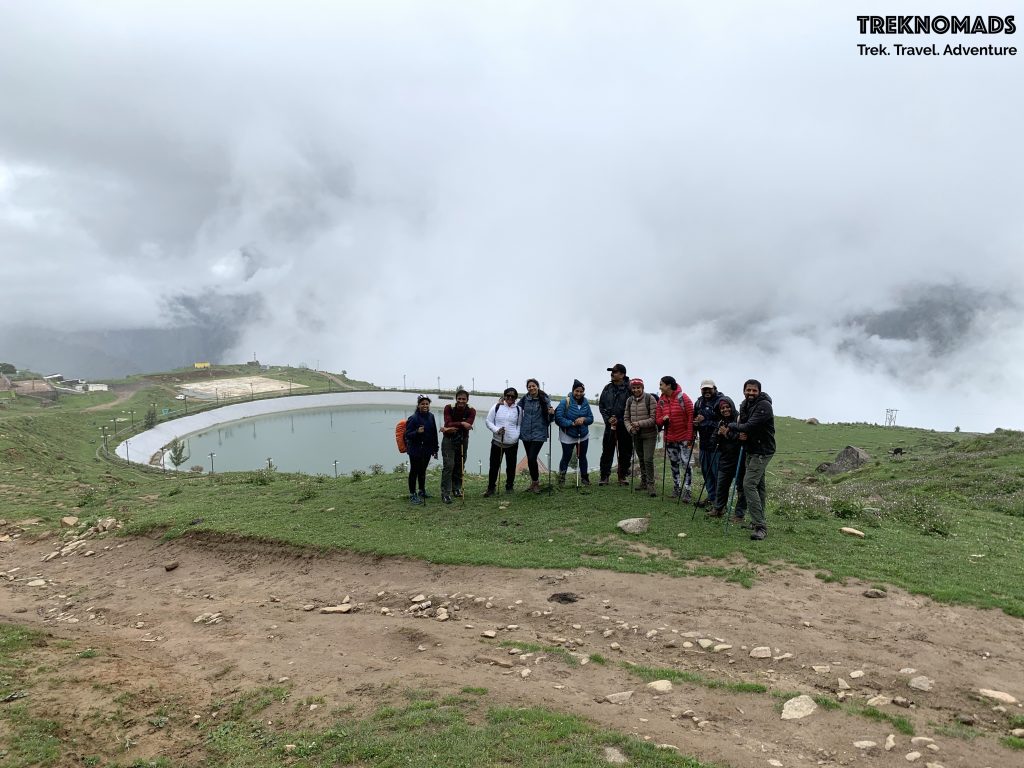
Visit India’s most popular and one & only ski destination – Auli on the first two days of the trek. Head out to the beautiful Gorson Bugyal for an acclimatization trek. Check the photoblog here.
Have hot langar by an Alpine Lake at 15,200 ft (4,633 m)
The Valley of Flowers trek is incomplete without an exhilarating climb to the world’s highest Gurudwara Shri Hemkund Sahib. Nestled in the backdrop of the pristine Hemkund lake is the holy Gurudwara that is visited by over thousands of devotees and trekkers every year. (Click here to read a detailed photoblog on our trek to Hemkund Sahib)
Visit the Panch Prayag
Travel via the five sacred river confluences in the Garhwal Himalayas. Devprayag, Rudraprayag, Karnaprayag, Nandaprayag and Vishnuprayag in the ascending flow sequence of their occurrence.
- Devprayag is the confluence of the two holy rivers, the Bhagirathi – the chief stream of the Ganges and the Alaknanda. It is the first Prayag on the way to Badrinath. Beyond this confluence, the river is known as the Ganges.
- Rudra Prayag is the confluence where the river Alaknanda meets the Mandakini River. The confluence is named after god Shiva, who is also known as Rudra.
- Karn Prayag is the location where Alaknanda River is joined by the Pindar River that originates from the Pindar glacier, below the Nanda Devi Mountain range.
- Nandaprayag is the confluence where the Mandakini River joins the main Alaknanda River.
- Vishnuprayag – The Alaknanda River, which originates from Satopanth glacier is joined by the Dhauli Ganga River near Joshimath (on Joshimath – Badrinath route). Alaknanda flows in front of the Badrinath temple, one of the most revered Hindu shrines.
The Views!
The trail to Gorsan Bugyal gives you a good close-up view of the revered Mt. Nanda Devi along with other peaks such as Mt. Chaukamba, Mt. Dronagiri, Hathi Parvat, Ghoda Parvat, and many more. All of this makes this trek a perfect escapade from the monotony of daily life. The landscapes will surely make you fall in love with photography.
Highlights of the trek:
- 5 Treks in one trip
- Acclimatization trek to Gorson Bugyal in Auli
- Trek to Hemkund Sahib – The highest Gurudwara in the world
- Trek to the Valley of Flowers – Explore the depths of this UNESCO World Heritage Site
- 2 Night stay in Auli – Ski destination of India
- Travel via the Holy Confluences of River Ganga (Devprayag, Rudraprayag, Karnaprayag, Nandprayag, Vishnuprayag).
- Visit one of the four Char Dham’s – Badrinath & India’s last village Mana (Photoblog of the trip to Badrinath & Mana)
Itinerary of the Valley of Flowers trek:
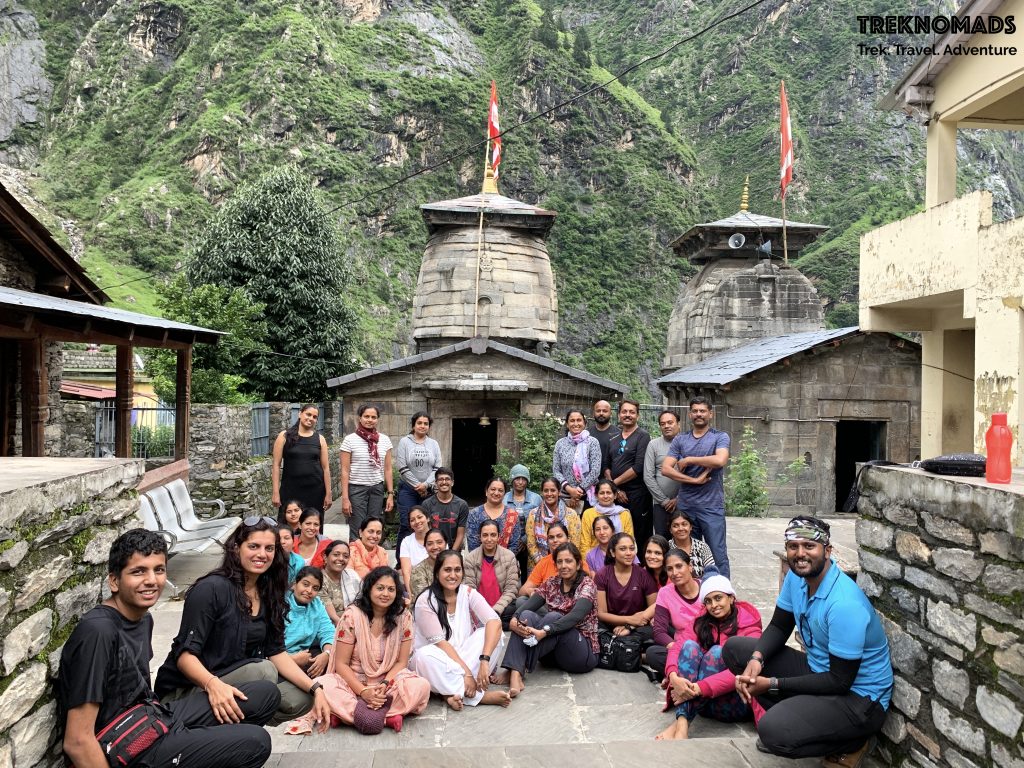
- Day 1 – Arrive at Rishikesh
- Day 2 – Travel to Auli (Travel via the 4 holy confluences of River Ganga – Devprayag, Rudraprayag, Karnaprayag, Nandprayag)
- Day 3 – Acclimatization trek to Gorsan Bugyal
- Day 4 – Drive to Govindghat via Joshimath and Trek to Ghanghariya
- Day 5 – Trek to Hemkund Sahib – Highest Gurudwara in the World
- Day 6 – Trek to Valley of Flowers – UNESCO World Heritage Site
- Day 7 – Trek to Govindghat from Ghanghariya and travel to Badrinath and Mana* (Travel via the 5th holy confluence of River Ganga – Vishnuprayag)
- Day 8 – Travel to Rishikesh
- Day 9 – Travel back to your city
Altitude Covered:
- Joshimath: 6,150 ft (1,875 m)
- Auli: 8,366 ft (2,550 m)
- Gorson Bugyal: 10,544 ft (3,214 m)
- Govindghat: 5,997 ft (1,828 m)
- Ghangariya: 10,003 ft (3,049 m)
- Hemkund Sahib: 15,200 ft (4,633 m)
- Valley of Flowers: 12,002 ft (3,658 m)
- Badrinath: 10,828 ft (3,300 m)
- Mana: 10,561 ft (3,219 m)
Treknical Details of the trek:
- Trek Gradient: Moderate
- Trek Distance: 50+ Km
- Assembling Point: Rishikesh
- Average Temperature: 5°C to 20°C
- Travel Distance: 720+ Km
- Best Months to trek: June, July, August, September
Best time to trek to Valley of Flowers:
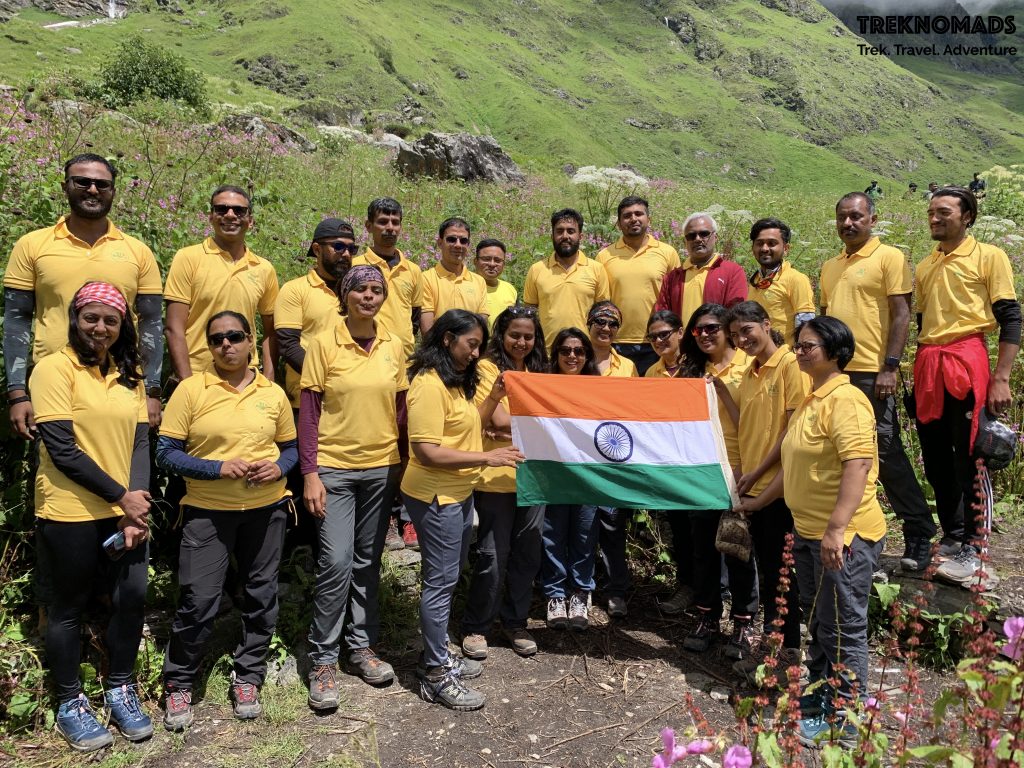
This trail officially opens up in June (dates defer each year depending on snowfall and other factors). This trek showcases a different side of nature every month making all the months between June – September equally beautiful. In this Valley of Flowers guide, we will help you picture how each month between June-September looks like on the trail and which season is best suited for you!
- June – Since this is the opening month, you can expect to see some amount of snow on the trail to both Valley of Flowers and Hemkund Sahib
- July – This is when the monsoons hit the country, however, the monsoons only start from mid-July and bring the Valley alive. You may not get to see a lot of flowers until mid-July but the lush green valley will leave you captivated, nevertheless. Also, July is one of the least crowded months on this trail.
- August – August is when you see the valley carpeted in flowers, if you are a nature enthusiast or a photographer, then this is when you should trek to the Valley of Flowers. There will be slight rains in August but the misty Himalayas just make the experience twice as good.
- September – You can expect to see a lot fewer flowers in September than in the other months, but what is interesting is that the skies clear up in September, giving you perfect views of the mountains and the trail. Also, the trail may be more crowded during this month owing to the pilgrims trekking up to Gurudwara Sri Hemkund Sahib.
In our opinion, anytime between Mid July – August end is a great time to trek to Valley of Flowers.
How to get fit for the Valley of Flowers trek
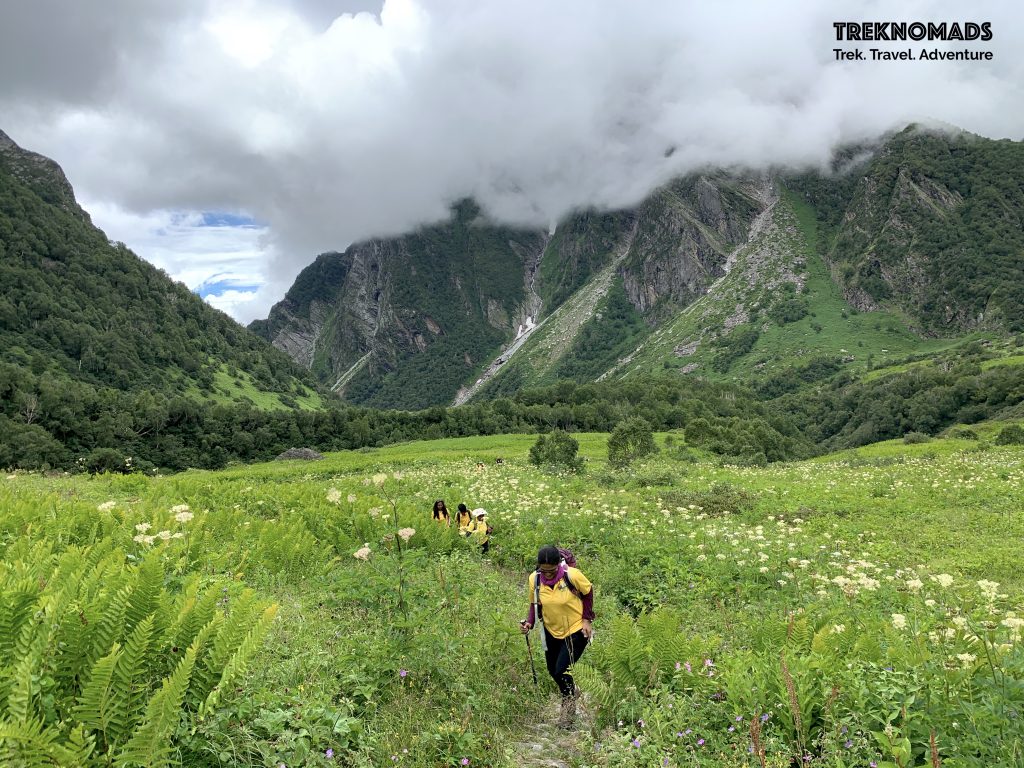
The Valley of Flowers trek is super popular when it comes to Himalayan treks in Uttarakhand and rightfully so. Especially because of the views, the grand valley, the majestic Hemkund, and other attractions on this trail. What no one tells you about the Valley of Flowers trek is that while it is good for beginner trekkers, there is definitely a need for trekkers to be physically fit to do this trek. So, when it comes to preparing for the Valley of Flowers trek, don’t leave fitness behind.
During the Valley of Flowers Trek, you complete over 50+ Km of trekking on 5 consecutive days, you trek roughly between 6 – 14 Km every day. There are a few patches in the trail (Govinghat to Ghangariy and the entire trail to Hemkund Sahib) that are quite steep and can only be done if you’re physically fit.
If you don’t have a fitness regime already, we recommend you start one at least 8 weeks before your trek. Eventually, you should be able to build your endurance over a period of time.
That is what this Valley of Flowers Guide is for. To know more about how to get fit for the Valley of Flowers trek, click here.
Things to carry:
How does the trail look in the Monsoons
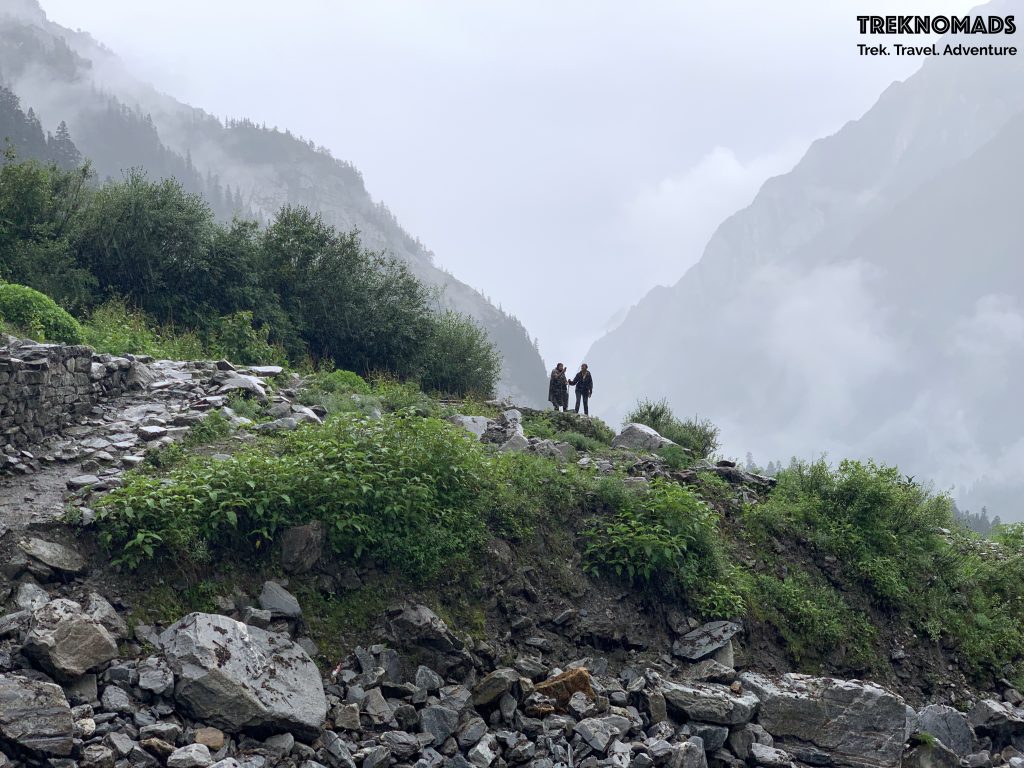
The Valley of Flowers trek comes alive during the monsoons. While the trail normally opens in June, it is in July and August when you can enjoy this trek the most. Furthermore, the Valley of Flowers trek is the only Himalayan trek in India that is meant to be done in the Monsoons. You can expect anything from a slight drizzle to a heavy downpour in these months. While the Valley and most the trail may be covered in mist and thick fog the serenity of the trail is unlike any other.
This trail is a paradise for botanists, new Himalayan trekkers, and photographers. We have picked out 45 stunningly beautiful pictures of the Valley of Flowers Trek captured over the years that will make you want to book your next trek right away! Here’s the link to the blog.
Valley of Flowers FAQs:
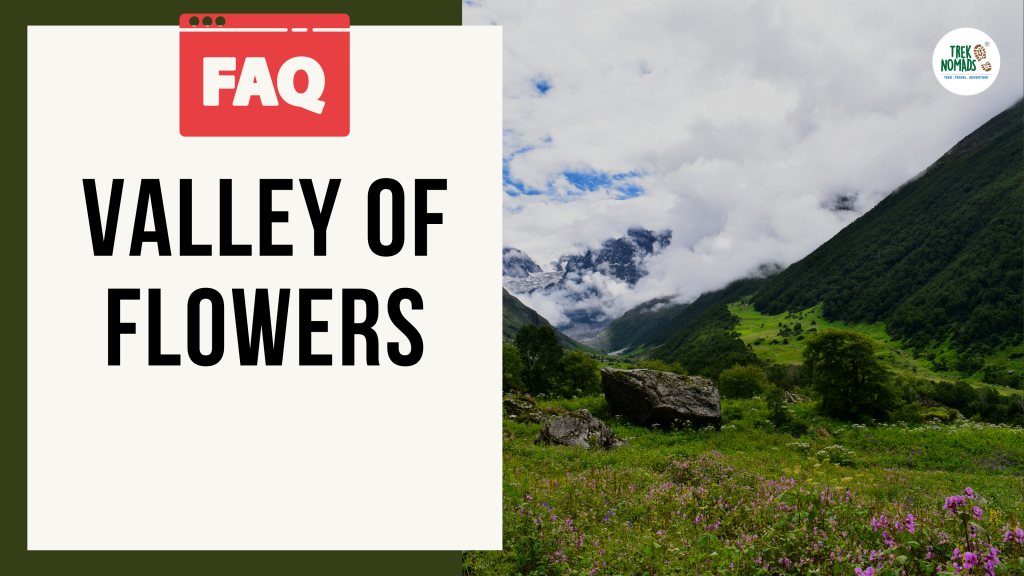
Thinking of doing the Valley of Flowers trek? Got queries that you need answers to before or after you book your trek? Well, if you’re thinking of, or, if you’ve booked your trek already, we are here to give you information and help you address all your queries.
Read the entire list of FAQs answered here
Insurance for the Valley of Flowers Trek
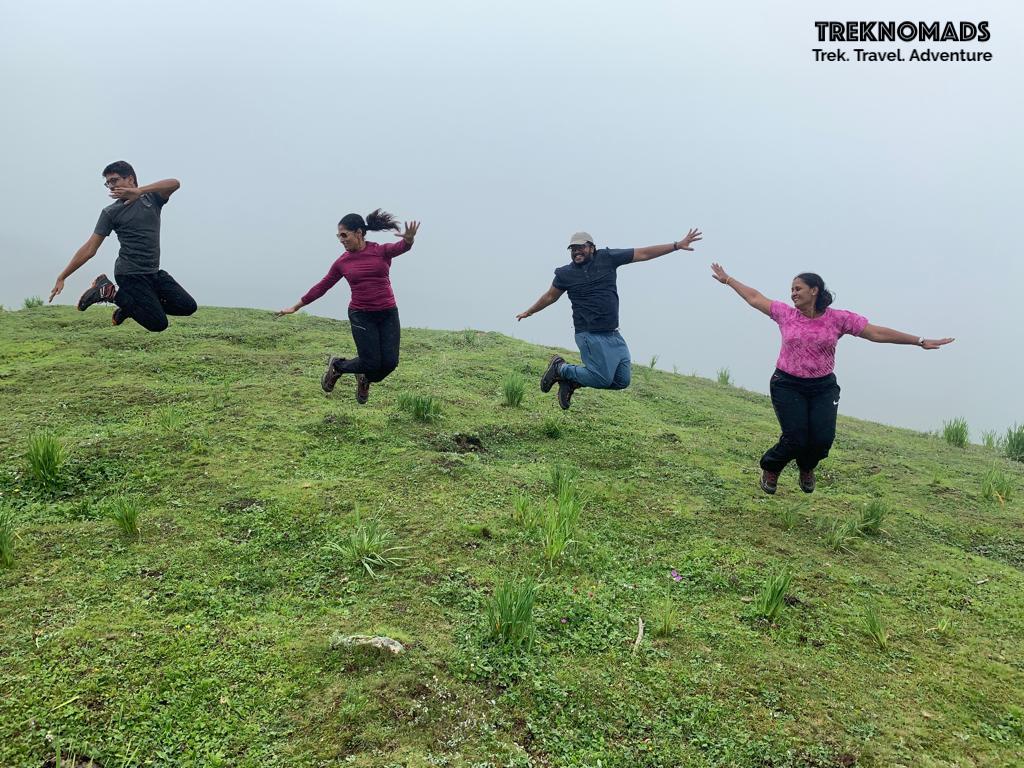
Here’s some happy news: Your trek package when you trek with TrekNomads includes complimentary insurance coverage!
The inclusions are:
| Benefits | Coverage amount |
| Hospitalization Expenses for injuries & illness | INR 3,00,000 |
| Medical Evacuation | INR 1,50,000 |
| Personal Accident | INR 3,00,000 |
| Outpatient Expenses for injuries/illness | INR 10,000 |
| Daily Allowance in Case of Hospitalisation due to injury/illness | INR 500*5 days |
| Checked-In Baggage Loss | INR 10,000 |
| Checked-In Baggage Delay | INR 2,500 |
| Missed connections | INR 10,000 |
| Compassionate Visit | INR 20,000 |
|
|
Infographic on the Valley of Flowers guide
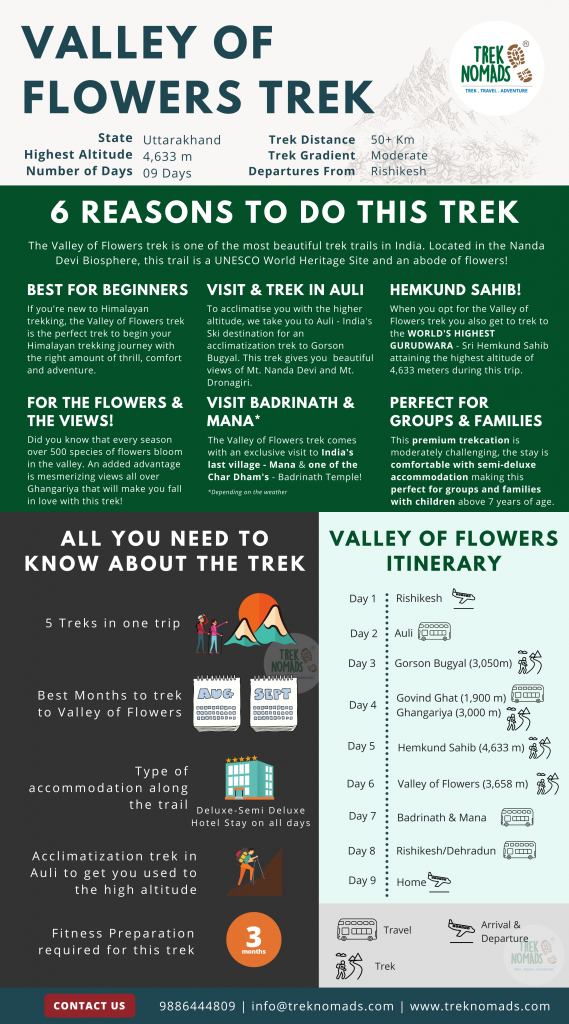
Valley of Flowers Important Links:
- If you want to check the Valley of Flowers Itinerary: Head over to our Valley of Flowers trek page
- For queries regarding the trek: Go to our Valley of Flowers FAQs page and find answers to all your question
- To see how the Valley looks during the monsoons: Check out this photoblog of 45 stunning pictures captured during the monsoon trek to Valley of Flowers
- How to get fit for the Valley of Flowers trek: Click here to read a detailed blog on preparing for the Valley of flowers trek
- Wondering what to carry for the trek: Read this blog with a detailed list of things to carry for the Valley of Flowers trek
- If you are looking for more treks to do in 2021: Here’s a link to our upcoming treks lined up for 2021
- Wondering how we’re ensuring safety during the COVID-19 situation: Click here to learn all about how we’re keeping treks and our Nomads safe during treks.
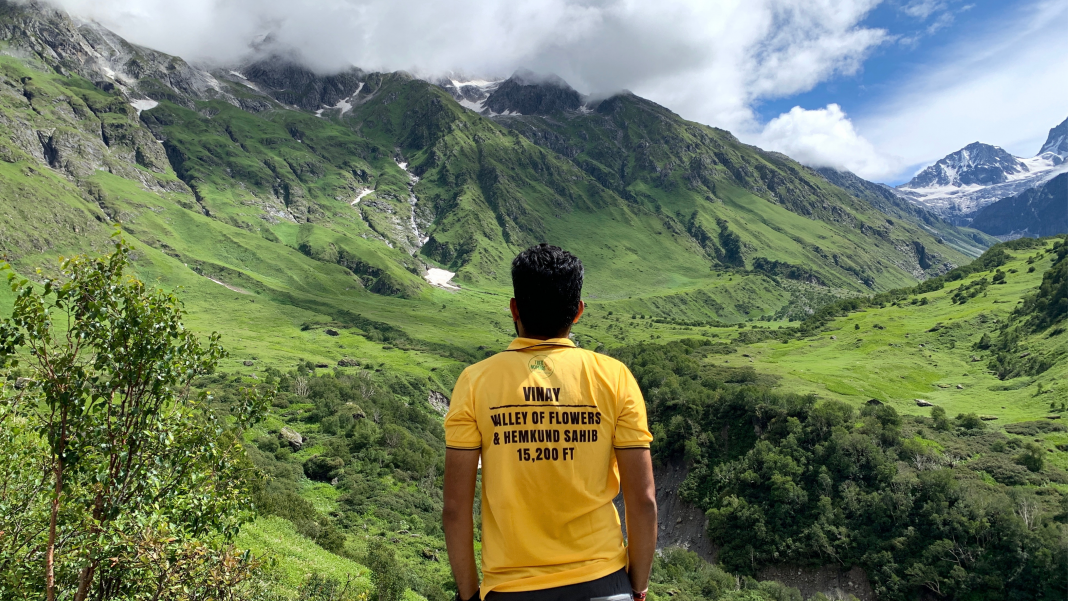

Price for valley of flower trek
We have sent you all the details in the mail.
Hi am interested. Does it also include Kedarnath?
No, it does not include Kedarnath. However, this trek includes Badrinath, the World’s Highest Gurudwara Hemkund Sahib, Panch Prayag, Mana Village where Mahabharatha was written and also the last village of India towards Tibet in this region.
How much is your package cost please let me inform.. from Haridwar to Haridwar.
You can check all the trek details, itinerary, inclusions, etc here https://www.treknomads.com/valley-of-flowers